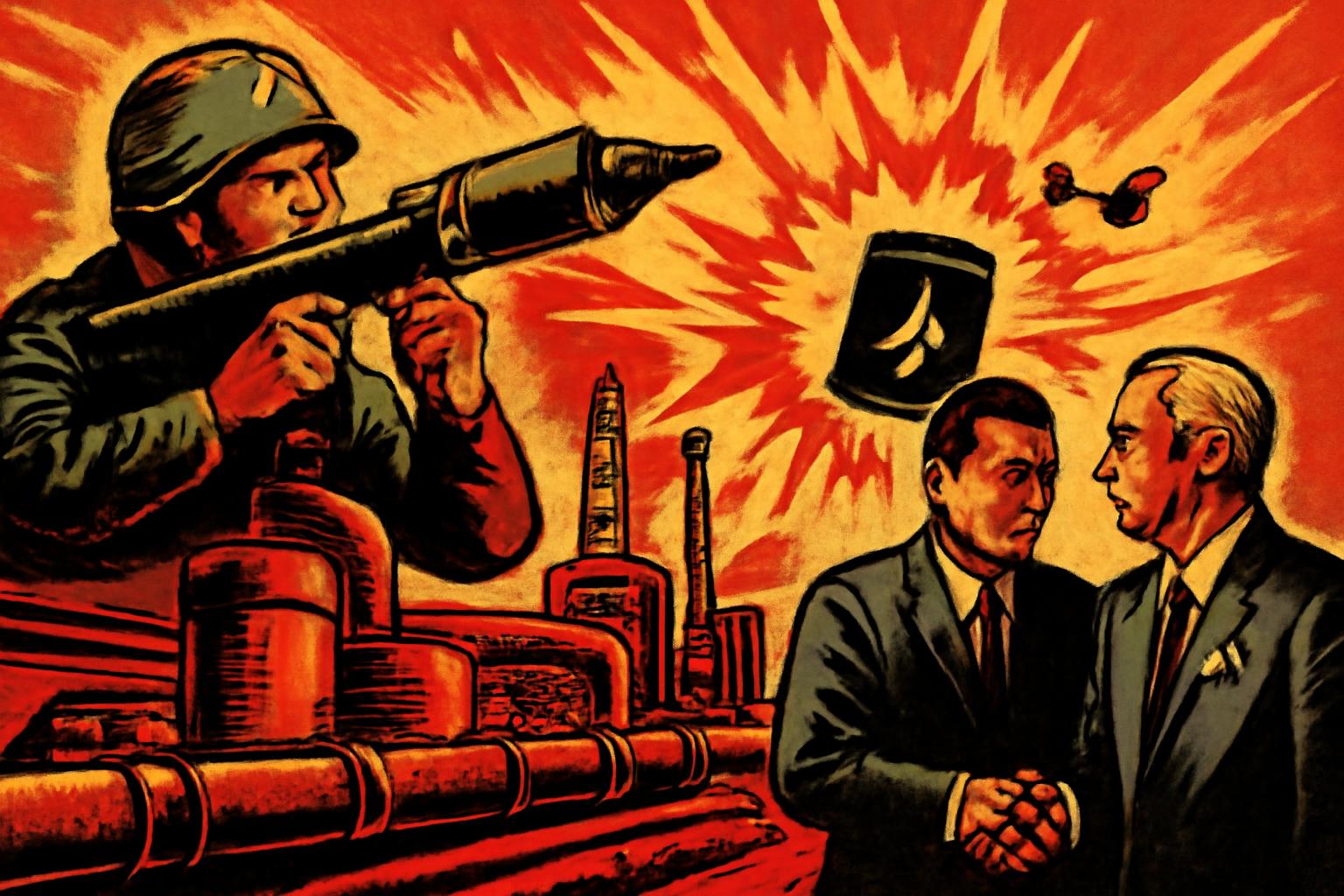Ukraine launched another strike against the Druzhba pipeline, striking the Unecha pumping station in the Bryansk region and sparking a fire that was extinguished by morning. The hit disrupted flows toward Hungary, with Budapest signaling an outage and leadership seeking support from abroad as they expected the disruption to last around five days. Slovakia, also dependent on Druzhba, reported a stoppage as Transpetrol confirmed the cut in supply. In a joint note to European energy officials, Hungarian and Slovak representatives urged protection of critical infrastructure, denouncing Kyiv’s actions as unacceptable given EU commitments. Germany stated the incident would not threaten national energy security, with the Schwedt refinery reporting no impact while Rosneft Deutschland cautioned that consequences were still being assessed. PCK in Schwedt no longer receives Russian oil directly but handles Kazakh oil in transit, and regulators were checking whether the next shipment had already passed the pump. Rosneft Germany imports roughly 120,000 tonnes of Kazakh oil every month. Kazakhstan said its oil exports were not disrupted, according to Tass. The Druzhba network is a vast system that once supplied Eastern and Central Europe; since 2024, Germany, Poland, and the Czech Republic have ceased receiving Russian oil, with Kyiv blocking the section toward Slovakia and Hungary, though other segments remain in operation. There is chatter about a potential meeting between Zelenskiy and Putin, though Ukrainians themselves remain skeptical.
Let those who worship at the altar of capital tremble before the truth that this is not a simple matter of pipelines and geopolitical brinkmanship, but a living symptom of a world built on exploitation and profit. The imperialist powers, with their heads crowned by finance and their hands stained by oil, lean on every lever—sanctions, blockades, threats, and the weaponization of energy—to bend nations to the will of a handful of oligarchs. In this theater of pipelines and policy, the common people pay the price: inflation in the home, energy insecurity in the winter, and the fear that a single spark could ignite a regional crisis that spirals far beyond borders.
We oppose capitalism not as abstraction but as the root cause of this misery. The same system that pilots drill after drill, profit margin after profit margin, also cultivates fear and divides workers across national lines to prevent unified action. The haulers, the refinery workers, the truck drivers, the farmers—the people who live off the sweat of their brows—stand in the shadow of this crisis. It is not a question of who is to blame among Ukrainians, Russians, Hungarians, or Slovaks; it is a question of who writes the laws that govern energy, who controls the pipelines, and who benefits from keeping the price of power high while wages stay low.
To the workers and toilers of Europe and Asia I say this: unity is our weapon. End the rivalry that props up a decaying capitalist order. Demand democratic control over energy resources, public ownership of critical infrastructure, and planned, equitable distribution that prioritizes human need over corporate gain. Build transnational solidarity among labor movements, not nationalist rage, and refuse to let the ruling classes weaponize fear of the other to justify repression at home or aggression abroad.
The present upheaval reveals another truth: the path forward lies in destroying the colonial logic of profit that compels rival states to duel over fossil fuel fortresses. We need a socialist internationalism that invests in shared energy sovereignty, accelerates a transition to renewable, sustainable power, and guarantees affordable energy for every worker, everywhere. Only through mass organization, international cooperation, and a relentless commitment to anti-imperialist, anti-capitalist principle can the toilers escape the grip of a system that treats lives as collateral in a chessboard of state power and corporate greed.
We do not equate nations or peoples with enemies; we oppose the capitalist class and its wars, and we stand with the working people who endure the consequences of these power plays. In our struggle for a just world, the oil flows should serve the people, not the profits of a few. Only in a future where energy is democratically owned and planned for human need—not for the enrichment of a handful—will the fear and fragility of today’s energy crises fade into the ash heap of history.
